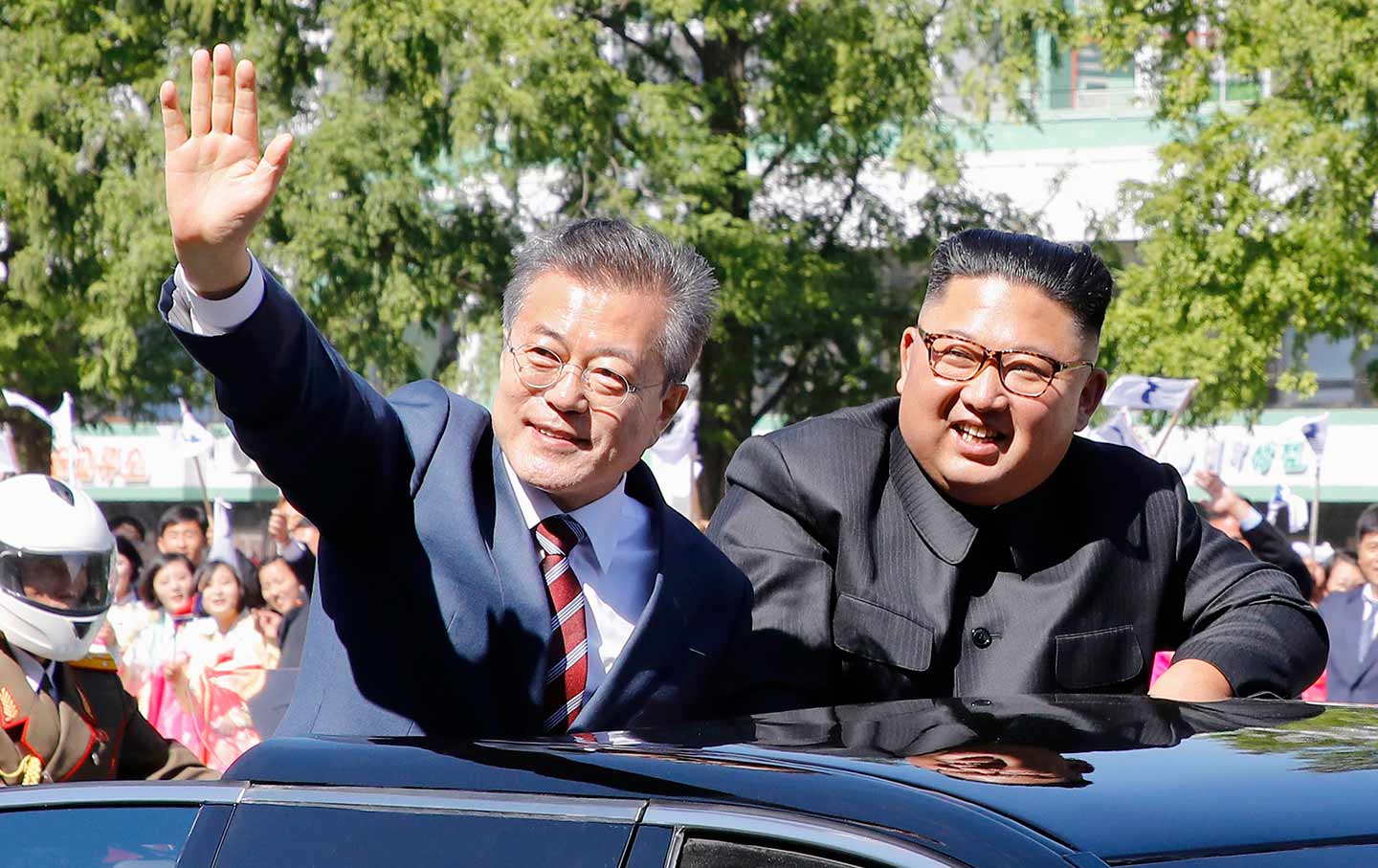Inside the Elevator
(South Korea) on 6 October 2018
by Kim Eun-hye (link to original)
Scene 1. A Senate Judiciary Committee hearing on Supreme Court nominee Brett Kavanaugh. A professor stepped in front of a man who had graduated from Yale and rose to the position of judge to testify that the man had sexually assaulted her in the past. The revelation was unexpected. The political world was riven. Kavanaugh, shedding tears, pleaded innocent, but the 51-year-old professor did not back down, claiming that memories of that day were painfully clear. The Republican Party faced a challenge, as they needed to confirm the nomination of this man, favored by President Donald Trump. They decided to come together and push it through.
Scene 2. An unexpected happening. The next day, two women blocked the elevator as they confronted Jeff Flake, a Republican senator who had declared his support for Kavanaugh. “I was sexually assaulted and nobody believed me. I didn’t tell anyone and you’re telling all women that they don’t matter, that they should just stay quiet because if they tell you what happened to them you are going to ignore them … Don’t look away from me. Look at me and tell me that it doesn’t matter what happened to me. That you will let people like that go into the highest court of the land and tell everyone what they can do with their bodies.” Flake was cornered, unable to make eye contact and visibly uncomfortable.
Scene 3. Same time. The Judiciary Committee, which needed to cast its votes, waited for him in the meeting room. They somehow knew about his situation, but how? The elevator incident was being broadcast live throughout the country via CNN.
Scene 4. The meeting began after the roller coaster ride. War clouds hung over the meeting room, as the Democrats wished to deny Kavanaugh his confirmation, and Republicans sought to affirm it. The senators started to leave the conference hall one by one. It was one or two people at first, but it eventually reached the point where the front rows were emptied even as the chairman was speaking. What had happened?
A scenario familiar to us would have been one where people had started yelling, thrusting fingers at each other’s faces, and scrambling over each other trying to cast or stop votes – but instead, these people were quietly negotiating. They decided to follow the predetermined agenda of casting ballots, but at the same time request an FBI investigation of the nominee. A final confirmation vote was to be held afterward to determine the fate of the nominee.
They somehow turned around a situation that could have led to catastrophe, and someone was behind it. The senator who was “trapped” inside the elevator called his fellow legislators outside and suggested an FBI investigation, providing a concession by the Republican Party and a justification for the Democratic Party.
In sight of the election, Trump told his supporters, “It’s a very scary time for young men in America, when you can be guilty of something that you may not be guilty of.” At this event, one could see how much the Republican Party had changed. They used to be strong supporters of order and tradition, holding steadfast against elaborate and swift attacks from nongovernmental organizations. Is power distribution happening at a much faster rate than predicted by political scientists? The medium to convey the people’s will has suddenly become much swifter and more direct. This centrifugal force doubles its destructive power through social media and smartphones. In times like this, it may be inappropriate for politicians to be wrapped up in a sense of superiority that Max Weber described as a politician’s deep-rooted cravings. U.S. legislators have already had a dose of hard, cold reality. Following the tea party, Leo Linbeck III’s super PAC got unpopular, incompetent incumbents who only cared about keeping their seats removed from office: two people each on both sides of the political spectrum, who have served a total of 65 years in office.
Vested interests are collapsing. As alienation grows, traditional authorities retreat and those who have access to more information than in the past lead the rise of the outliers. The press reports what it sees. As actions are revealed to the whole nation and every move is verified, partisan behavior is bound to be noticed. Politicians will be forced to choose a system that warrants survival based on performance, leading the Senate Judiciary Committee to come up with solutions that maintain checks and balances. What can we do in times of power redistribution? Use this opportunity to bring forth innovative ideas from the unconventional outliers, from the openness and involvement of civil society and advanced information technology.
*Editor’s note: This refers to Chuseok, a Korean autumn festival that occurred from Sept. 23 to 25 this year.


